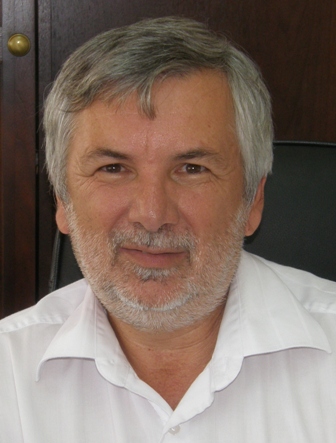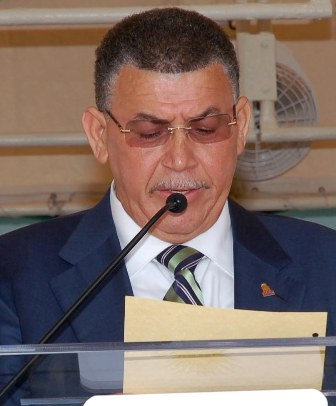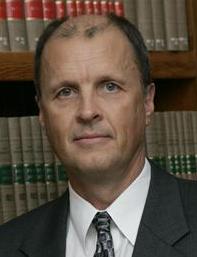Archive for May, 2010

Missing teenage girl found safe
(CNS): Police say 15-year-old Shandi Sandoval has been found safe and well. Following a series of police operations in the Prospect and Bodden Town areas yesterday, Monday 10 May, the missing teenager was traced and a 19-year-old man was arrested on suspicion of misleading the police. The man is currently in police custody and police enquiries are ongoing. Shandi is currently in a place of safety, police say. On Tuesday 4 May, the 20-year-old man suspected of assisting Shandi by providing food and shelter was arrested.
He was released on police bail and police confirmed today that enquiries continue into this matter

Cameron new prime minister
 (CNS): Update 2:45 pm — Leader of the Conservative Party, David Cameron, has arrived at 10 Downing Street from Buckingham Palace, where Queen Elizabeth asked him to form the next British government. This followed talks with the third party Liberal Democrats to form some sort of coalition government. Gordon Brown has resigned as Leader of the Labour Party, which will now chose a new leader. In a speech made outside his new home, Cameron gave no indication of the deal made by the Lib Dems and the Tories. Nevertheless, a Tory in Number 10 will please the Cayman government, which appears to believe that the Conservatives will be more sympathetic to their opposition to introduce taxes to the islands.
(CNS): Update 2:45 pm — Leader of the Conservative Party, David Cameron, has arrived at 10 Downing Street from Buckingham Palace, where Queen Elizabeth asked him to form the next British government. This followed talks with the third party Liberal Democrats to form some sort of coalition government. Gordon Brown has resigned as Leader of the Labour Party, which will now chose a new leader. In a speech made outside his new home, Cameron gave no indication of the deal made by the Lib Dems and the Tories. Nevertheless, a Tory in Number 10 will please the Cayman government, which appears to believe that the Conservatives will be more sympathetic to their opposition to introduce taxes to the islands.
However, given the size of the UK’s own deficit, it is unlikely that the new overseas minister is going to look more favourably on the CIG entering into further borrowing without some form of new revenue measures.
While the premier may have hinted that he would prefer a Conservative government, the reality is that the Tories would be far more likely to advise the CIG to push for even more public service cuts as well as some form of taxation. The Tories may be the party of a little bit less tax; they are by no means the party of no tax. In the end, although Cayman may bid farewell to Chris Bryant, the CIG won’t be saying goodbye to the UK policy when it comes to the impact of contingent liabilities.
Following talks with the Conservatives immediately following the elections, which resulted in a hung parliament, the Lib Dems opened up talks with Labour Monday morning but with many Labour MPs opposed to forming an alliance with the Liberal Democrats, those talks appear to have broken down irrevocably and the Libs returned to the Tory camp.
Liberal Democrat leader Nick Clegg is said to be looking for a coalition government, with members of his party given Cabinet positions. However, Cameron may baulk at that and the parties may be working towards a looser arrangement in which the Liberal Democrats agree not to vote down a Tory budget or trigger an election by joining the Labour party in a no confidence vote, but to vote on all other issues on a case-by-case basis.
A key issue for the Liberal Democrats is a reform of the electoral process.

UCCI case ‘too slow’, says AG
 (CNS): What was a relatively straight forward fraud has taken too long to be resolved, the auditor general said on his last day in post as he talked with CNS about unfinished business. Dan Duguay explained that while the audit office had for its part finished its audit into what had happened to public funds at the University College of the Cayman Islands and the apparent fraud by the former president, exactly one year on since Duguay handed over the information to police they had still not concluded their criminal investigations. He said he still hoped it would come to some fruition as he felt the people of the Cayman Islands deserved some answers.
(CNS): What was a relatively straight forward fraud has taken too long to be resolved, the auditor general said on his last day in post as he talked with CNS about unfinished business. Dan Duguay explained that while the audit office had for its part finished its audit into what had happened to public funds at the University College of the Cayman Islands and the apparent fraud by the former president, exactly one year on since Duguay handed over the information to police they had still not concluded their criminal investigations. He said he still hoped it would come to some fruition as he felt the people of the Cayman Islands deserved some answers.

FOI being denied, warns ICO
 (CNS): The information commissioner has raised concerns that government departments are merely paying lip-service to the idea of freedom of information but have not embraced the culture. Feedback to the office suggests the public is been denied access to records requested under the law and Jennifer Dilbert says there are genuine concerns that the public is being misinformed by public officials who are not following the proper procedures. Requests for people’s identity, incidents of intimidation and unfounded refusals have all been reported to her office.
(CNS): The information commissioner has raised concerns that government departments are merely paying lip-service to the idea of freedom of information but have not embraced the culture. Feedback to the office suggests the public is been denied access to records requested under the law and Jennifer Dilbert says there are genuine concerns that the public is being misinformed by public officials who are not following the proper procedures. Requests for people’s identity, incidents of intimidation and unfounded refusals have all been reported to her office.
As a result Dilbert is making an appeal to people to report their experiences to her office so that the ICO team can address the problems.

Man arrested after woman stabbed in neck
 (CNS): Police said this evening that officers are continuing their enquiries following the arrest of a 26-year-old man on suspicion of attempted murder. At about 8:13 on Sunday evening, 9 May, a woman sustained serious neck injuries while at her home in the George Town area. Police say the victim of the attack called the police at the time of the incident and the man arrested remains in police custody. Meanwhile, police are seeking witnesses to another violent incident on Saturday morning in which a 29-year-old man was stabbed with a bottle outside the LI nightclub.
(CNS): Police said this evening that officers are continuing their enquiries following the arrest of a 26-year-old man on suspicion of attempted murder. At about 8:13 on Sunday evening, 9 May, a woman sustained serious neck injuries while at her home in the George Town area. Police say the victim of the attack called the police at the time of the incident and the man arrested remains in police custody. Meanwhile, police are seeking witnesses to another violent incident on Saturday morning in which a 29-year-old man was stabbed with a bottle outside the LI nightclub.

Man drowns swimming off South Sound coast
(CNS): The RCIPS have now confirmed that a Jamaican man died while swimming over the weekend. A police spokesperson said this afternoon that at around 1.20 pm on Sunday, 9 May, the police received a report that a swimmer had gone missing close to Sand Cay, South Sound. A search was then launched and the Marine Unit Tornado was deployed. A short time later the body of a 43-year-old Jamaican male was recovered from the sea by Marine Unit officers. CPR was conducted as the body was brought to shore and he was conveyed to the Cayman Islands Hospital, in George Town where he was pronounced dead on arrival.

First two weapons in as gun amnesty underway
 (CNS): The police firearms amnesty was officially underway this morning when the strong boxes were placed in police stations on Grand Cayman and Cayman Brac. Two different sized, specially designed boxes have been placed in the foyer of George Town, Bodden Town, West Bay and Cayman Brac police stations, enabling the general public to bring in firearms without fear of prosecution. A handgun and a shot gun have already been deposited in the relevant boxes at the Bodden Town station under the no-questions-asked-amnesty which will run until 10 June. (Photo by Dennie Warren Jr)
(CNS): The police firearms amnesty was officially underway this morning when the strong boxes were placed in police stations on Grand Cayman and Cayman Brac. Two different sized, specially designed boxes have been placed in the foyer of George Town, Bodden Town, West Bay and Cayman Brac police stations, enabling the general public to bring in firearms without fear of prosecution. A handgun and a shot gun have already been deposited in the relevant boxes at the Bodden Town station under the no-questions-asked-amnesty which will run until 10 June. (Photo by Dennie Warren Jr)

Mac says government still workingon three year plan
 (CNS): The government has still not revealed the details of the three-year plan it sent to the UK Foreign and Commonwealth Office in March or what the UK’s response has been to these medium term financial proposals for eliminating the current deficit. In a message delivered to the Cayman Finance Summit the premier told the industry that government had submitted a three-year economic plan to London, which had raised queries in specific areas. He did not confirm if the taxation question had been one of those queries but again promised not to introduce income or property tax.
(CNS): The government has still not revealed the details of the three-year plan it sent to the UK Foreign and Commonwealth Office in March or what the UK’s response has been to these medium term financial proposals for eliminating the current deficit. In a message delivered to the Cayman Finance Summit the premier told the industry that government had submitted a three-year economic plan to London, which had raised queries in specific areas. He did not confirm if the taxation question had been one of those queries but again promised not to introduce income or property tax.

Pension expert warns of major losses during holiday
 (CNS): Local pension experts have warned that the two year pension holiday could result in fund losses close to $200,000 for those aged 25 and under who decide to take advantage of the break. Government recently passed legislation removing the legal obligation of employers and employees to pay pensions if the employees are in agreement, not surprisingly, the pension industry has been warning that the two year holiday if taken will have a serious impact on people’s future financial security. Brian Williams, CEO of Saxon agent for Silver Thatch Pensions recently told members of the human resources industry what he believed the negative implications will be.
(CNS): Local pension experts have warned that the two year pension holiday could result in fund losses close to $200,000 for those aged 25 and under who decide to take advantage of the break. Government recently passed legislation removing the legal obligation of employers and employees to pay pensions if the employees are in agreement, not surprisingly, the pension industry has been warning that the two year holiday if taken will have a serious impact on people’s future financial security. Brian Williams, CEO of Saxon agent for Silver Thatch Pensions recently told members of the human resources industry what he believed the negative implications will be.

Legal aid still unsettled
 (CNS): Some of the questions surrounding the recent legal aid review were discussed during Public Accounts Committee last week. Although the results of the report undertaken earlier this year have remained under wraps, Valdis Foldats, who was a member of the Legal Aid Review Committee told PAC, in his opinion, that the cost of a legal aid clinic would be far more expensive than the current arrangements. The review was finished several weeks ago in March but government is refusing to reveal its contents, despite an FOI request submitted by CNS. The PAC meeting gave the first indication in public that the findings may not be to government’s liking.
(CNS): Some of the questions surrounding the recent legal aid review were discussed during Public Accounts Committee last week. Although the results of the report undertaken earlier this year have remained under wraps, Valdis Foldats, who was a member of the Legal Aid Review Committee told PAC, in his opinion, that the cost of a legal aid clinic would be far more expensive than the current arrangements. The review was finished several weeks ago in March but government is refusing to reveal its contents, despite an FOI request submitted by CNS. The PAC meeting gave the first indication in public that the findings may not be to government’s liking.